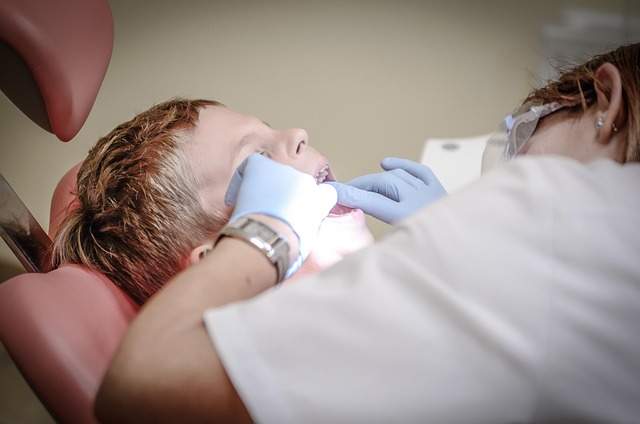Understanding How Travel Credit Cards Work in India
Travel credit cards have become increasingly popular among Indian travelers seeking to maximize their spending power while exploring destinations both domestic and international. These specialized financial products offer rewards, perks, and benefits tailored specifically for those who frequently book flights, hotels, and other travel-related expenses. Understanding how these cards function and what they offer can help you make informed decisions about whether they suit your lifestyle and financial goals.

Travel credit cards represent a unique category of financial products designed to reward cardholders for their travel-related expenditures. In India, these cards have gained significant traction as more people embrace travel as a lifestyle choice and seek ways to optimize their spending. Whether you’re a frequent business traveler or someone who enjoys occasional vacations, understanding the mechanics and benefits of travel credit cards can help you leverage them effectively.
How Travel Credit Cards Work
Travel credit cards function similarly to regular credit cards but with added incentives focused on travel spending. When you use these cards for purchases, particularly travel-related transactions like airline tickets, hotel bookings, or dining expenses, you accumulate reward points or miles. These accumulated rewards can later be redeemed for flight bookings, hotel stays, upgrades, or even statement credits. The card issuer partners with airlines, hotel chains, and travel platforms to provide these benefits. Most travel credit cards in India operate on a points-per-rupee-spent model, where every transaction earns you a specific number of points based on the category of spending. Premium cards typically offer accelerated earning rates for travel categories while maintaining base earning rates for other purchases.
Understanding Travel Rewards Programs
Travel rewards programs form the backbone of travel credit cards. These programs can be broadly categorized into two types: co-branded cards linked to specific airlines or hotel chains, and general travel rewards cards that offer flexibility across multiple providers. Co-branded cards typically offer enhanced benefits when used with partner airlines or hotels, including priority boarding, lounge access, and bonus miles. General travel rewards cards provide more versatility, allowing you to transfer points to various airline and hotel loyalty programs or book through the card issuer’s travel portal. Understanding the redemption value of points is crucial, as it varies significantly between programs. Some programs offer better value when points are transferred to airline partners, while others provide competitive rates through their proprietary booking platforms. The key is to match the rewards program structure with your travel patterns and preferences.
Benefits of Travel Credit Cards
Travel credit cards offer numerous advantages beyond basic reward accumulation. Complimentary airport lounge access stands as one of the most appreciated perks, providing a comfortable space to relax before flights. Many cards include travel insurance coverage, protecting you against trip cancellations, lost baggage, and medical emergencies abroad. Fuel surcharge waivers, milestone bonuses, and anniversary rewards add further value to cardholders. Some premium cards offer concierge services that assist with travel bookings, restaurant reservations, and emergency assistance while traveling. Foreign currency markup fees are often reduced or waived on international transactions, resulting in significant savings for overseas travelers. Additionally, certain cards provide complimentary golf rounds, spa vouchers, and dining privileges at partner establishments. The welcome bonus offered upon card approval and meeting minimum spending requirements can sometimes cover a significant portion of the annual fee, making these cards particularly attractive during the first year.
How to Earn Miles and Points
Maximizing miles and points accumulation requires strategic planning and disciplined spending habits. The most straightforward method involves using your travel credit card for all eligible purchases, especially in bonus categories that offer accelerated earning rates. Many cards provide 2x to 10x points on travel bookings, dining, and specific merchant categories. Consolidating your household expenses onto one travel card can rapidly build your points balance. Taking advantage of sign-up bonuses by meeting the minimum spending requirement within the specified timeframe provides an immediate boost to your rewards account. Some card issuers offer shopping portals where purchases through partner retailers earn additional points. Referring friends and family members can generate referral bonuses. Paying utility bills, insurance premiums, and other recurring expenses through your travel card ensures consistent point accumulation. However, it’s essential to pay off balances in full each month to avoid interest charges that would negate the value of earned rewards. Monitoring promotional offers and limited-time bonus categories can help you optimize earning potential throughout the year.
Comparing Popular Travel Credit Card Features in India
When selecting a travel credit card, comparing features across different providers helps identify the best fit for your needs. Below is a comparison of typical offerings from major card issuers in India:
| Card Type | Annual Fee Range | Reward Rate | Key Features |
|---|---|---|---|
| Entry-Level Travel Cards | ₹500 - ₹2,500 | 1-2 points per ₹100 | Basic lounge access, travel insurance |
| Mid-Tier Travel Cards | ₹2,500 - ₹10,000 | 2-4 points per ₹100 | Enhanced lounge visits, fuel waivers, milestone bonuses |
| Premium Travel Cards | ₹10,000 - ₹50,000 | 4-10 points per ₹100 | Unlimited lounge access, concierge, comprehensive insurance |
| Super-Premium Cards | ₹50,000+ | 10+ points per ₹100 | Luxury benefits, golf privileges, exclusive experiences |
Prices, rates, or cost estimates mentioned in this article are based on the latest available information but may change over time. Independent research is advised before making financial decisions.
Selecting the right travel credit card depends on your annual spending patterns, travel frequency, and the specific benefits you value most. Entry-level cards suit occasional travelers who want basic perks without high annual fees, while premium options make sense for frequent travelers who can justify the cost through regular benefit usage. Calculating the break-even point by comparing annual fees against the monetary value of benefits you’ll actually use provides clarity in decision-making.
Maximizing Value from Your Travel Credit Card
Owning a travel credit card is just the beginning; extracting maximum value requires active engagement with the rewards program. Regularly review your points balance and redemption options to ensure points don’t expire unused. Many programs have expiration policies that forfeit points after periods of inactivity. Plan major redemptions strategically, as award availability often varies by season and destination. Combining points with cash payments can sometimes provide better value than all-cash bookings. Stay informed about program changes, as issuers periodically adjust earning rates, redemption values, and partnership agreements. Pairing your travel credit card with airline and hotel loyalty programs creates additional earning opportunities, as you can collect both credit card points and program-specific miles or points on the same transaction. Understanding blackout dates, booking restrictions, and transfer ratios ensures you avoid disappointment when redeeming rewards.
Travel credit cards offer compelling benefits for those who travel regularly and can manage credit responsibly. By understanding how these cards work, familiarizing yourself with rewards programs, and strategically earning and redeeming points, you can significantly reduce travel costs while enjoying enhanced experiences. The key lies in selecting a card aligned with your travel habits and maximizing its features through informed usage.




